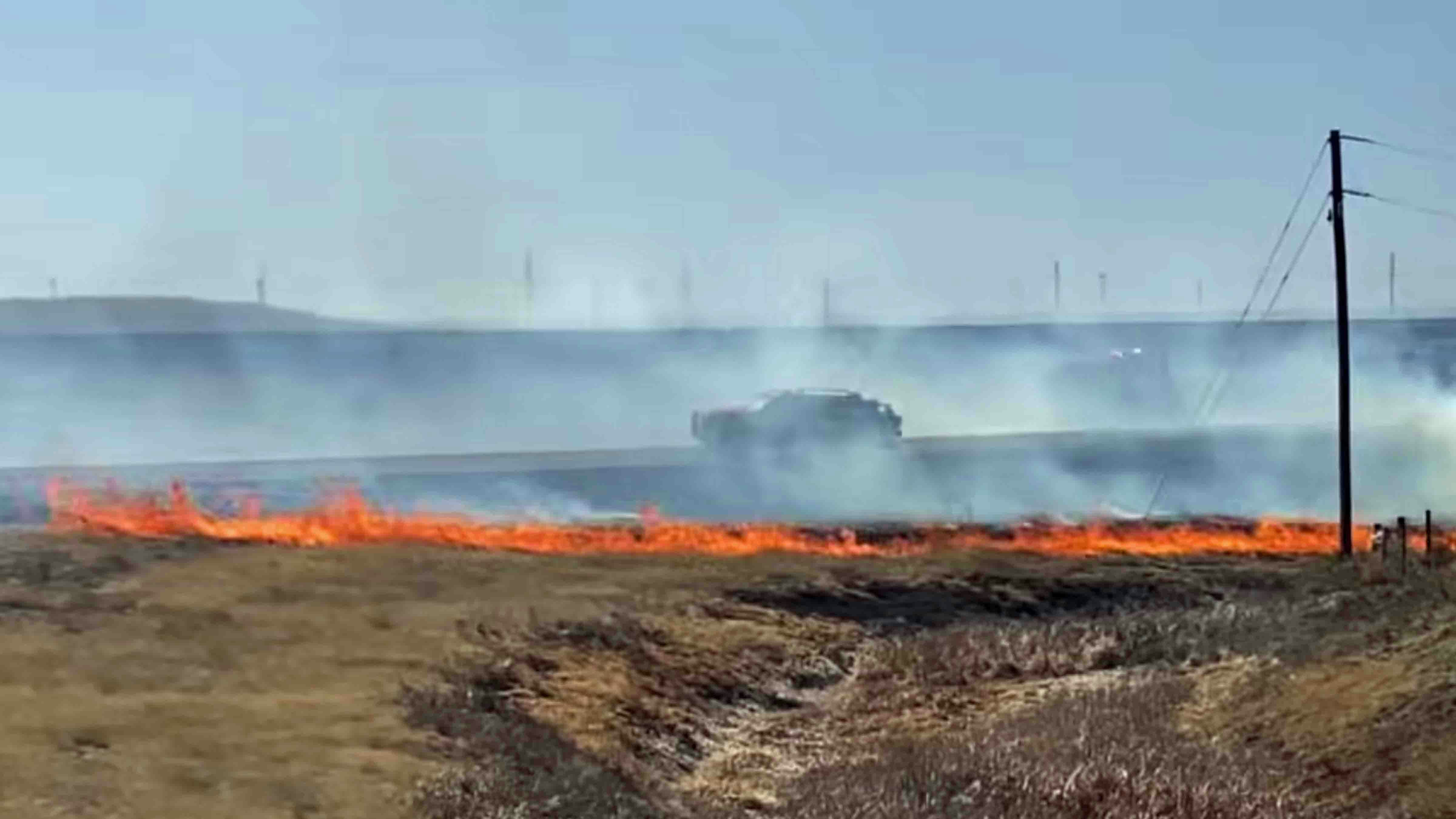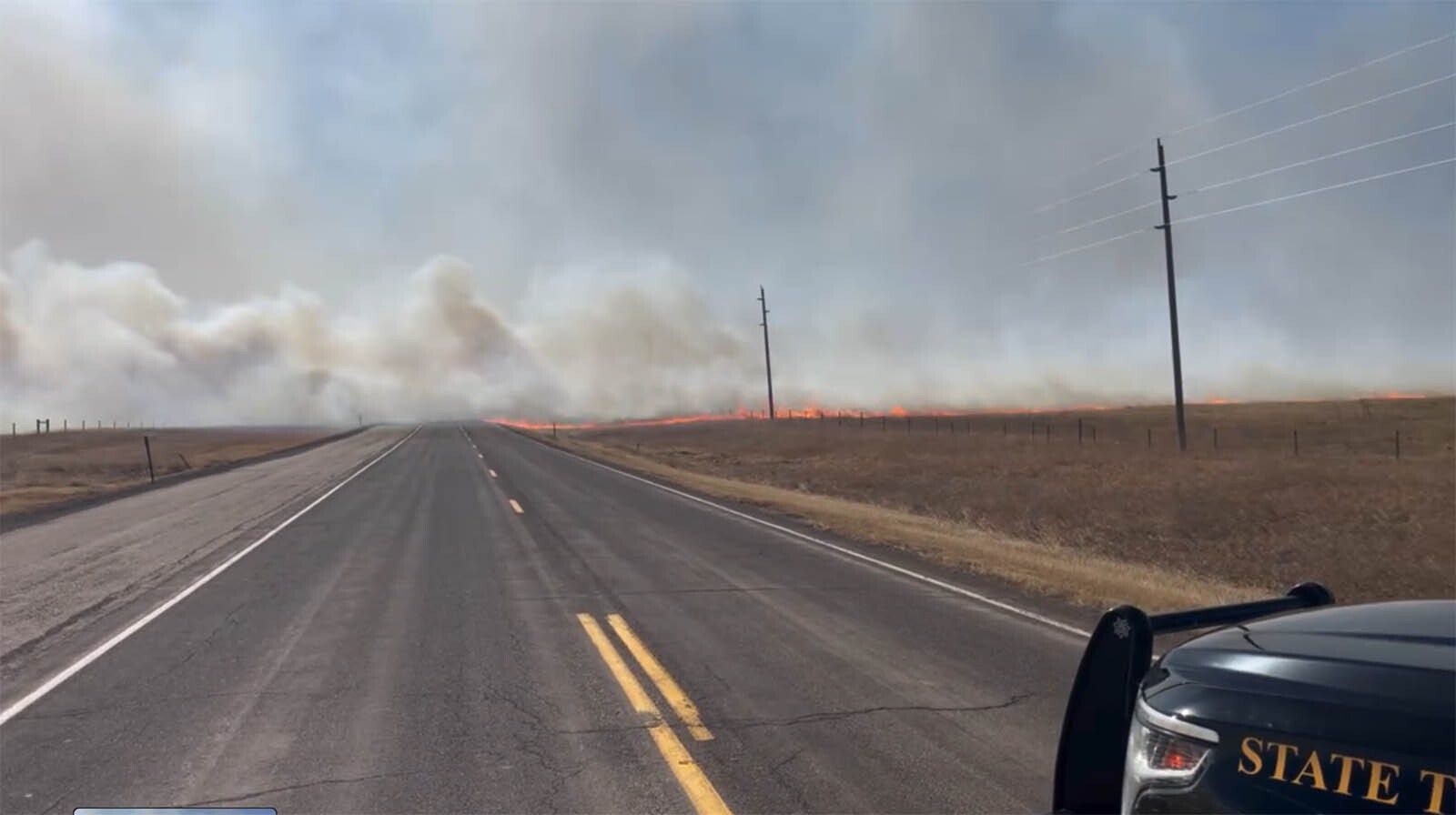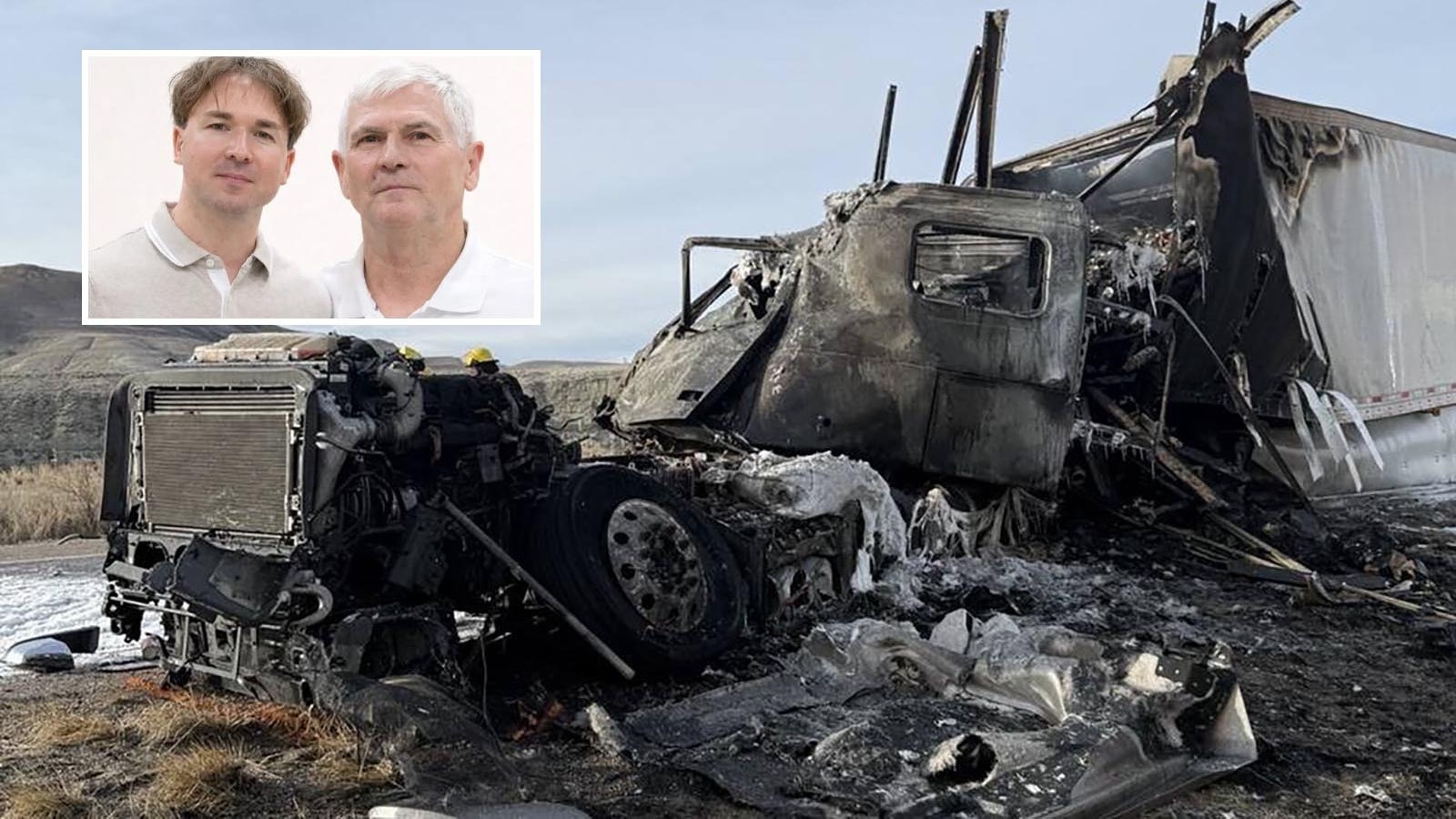A rapidly spreading grass fire driven by 60 mph winds west of Cheyenne temporarily diverted traffic off Interstate 25 southbound Saturday afternoon while it also jumped the southern lanes of I-80.
The fire was reported late Saturday morning about 7 miles west of Cheyenne just south of I-80, and it quickly spread as wind gusts over 60 mph pushed it east toward Wyoming’s capital city. The blaze created plumes of black smoke that was carried by the winds and seen for miles.
It also prompted multiple firefighting agencies to respond to fight the fast-moving flames.
After several hours, the fire seemed to burn itself out, but some areas were still smoldering.
‘It Was Spreading In Every Direction’
Laramie resident Emma Merrill was driving toward Cheyenne when she encountered stopped traffic on I-80 backed up for almost 15 miles. Because she was driving the same way the wind was blowing, there wasn’t any warning there was a grass fire ahead.
“We didn’t see the smoke for another 10 miles or so,” she told Cowboy State Daily. “Then we got to the active fire. It was spreading in every direction. Fire trucks everywhere. There was a section of the fire that was moving as fast, if not faster than the car — and we were going 60 mph heading east. Between the beginning of Otto Road and where we turned around, we saw three areas where the fire had crossed the road.”
Merrill attempted to avoid the flames, which she said were around 6 feet high. Black, billowing smoke made turning around even more treacherous.
“Most of the road was covered in smoke, moreso than when we were first driving through,” she said. “There were parts where you couldn’t see more than two feet in front of the car. It was so thick and dark.”
The Wyoming Highway Patrol reports the fire was active, but appeared “under control” by 1 p.m., with firefighters “working on hot spots.” However, by 3 p.m., flames were still visible, moving southeast toward the state line, but it was no longer threatening the I-80 corridor.
No Dry Commentary
Seeing the size and speed of the late February wildfire can make Wyomingites anxious. To many, it's a symptom of a warm winter and a bad sign of the fire season to come.
However, Cowboy State Daily meteorologist Don Day said the fire's intensity can't be blamed on unseasonably dry weather. Because this winter, Cheyenne isn't either.
"Cheyenne has had above-normal precipitation in January and February," he said. "The wind, obviously, is the bigger factor. I don't know how it started, but you can't blame excessive dryness for this fire."
Day added that there's snow in Cheyenne's extended forecast, which should bring even more moisture to the region. The National Weather Service predicts a 70% chance of precipitation, mainly snow, for Tuesday.
As for ill omens, Day would also advise against seeing a late February fire as a prophetic sign. Historically, February is one of the driest months of the year in Wyoming, followed by the four wettest months. There's still lots of time to gain more moisture.
"You cannot say this fire is a precursor to anything to come later this year," he said.
Closures And Warnings
The National Weather Service has issued a High Wind Warning with wind gusts as high as 65 mph that’s in effect until 2 a.m. Sunday.
The Wyoming Department of Transportation fully closed I-25 south between Cheyenne and the Wyoming/Colorado state line around 11:36 a.m. The full closure was lifted by 1:40 p.m.
Meanwhile, I-25 between Douglas and Cheyenne, and south to the state line, is closed to light and high-profile vehicles because of “extreme blow over risk” from the strong wind gusts. Similar closures were in effect for I-80 and U.S. 30/287 between Laramie and Rawlins.
Andrew Rossi can be reached at arossi@cowboystatedaily.com.










